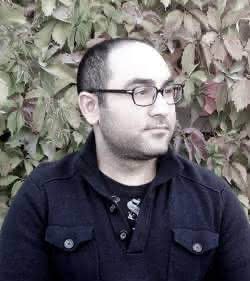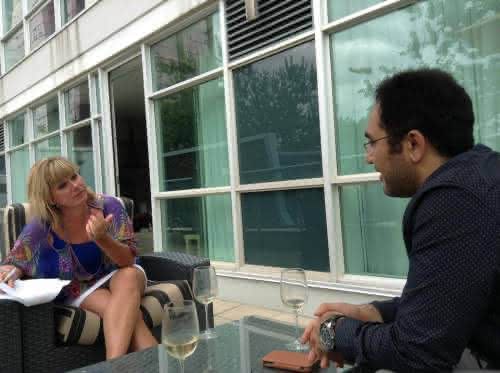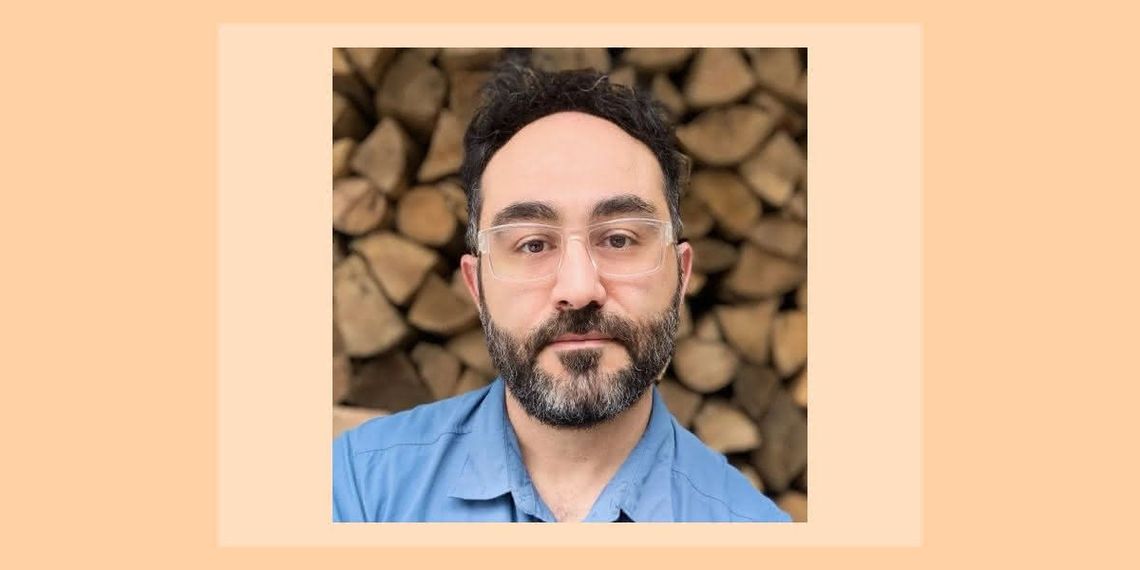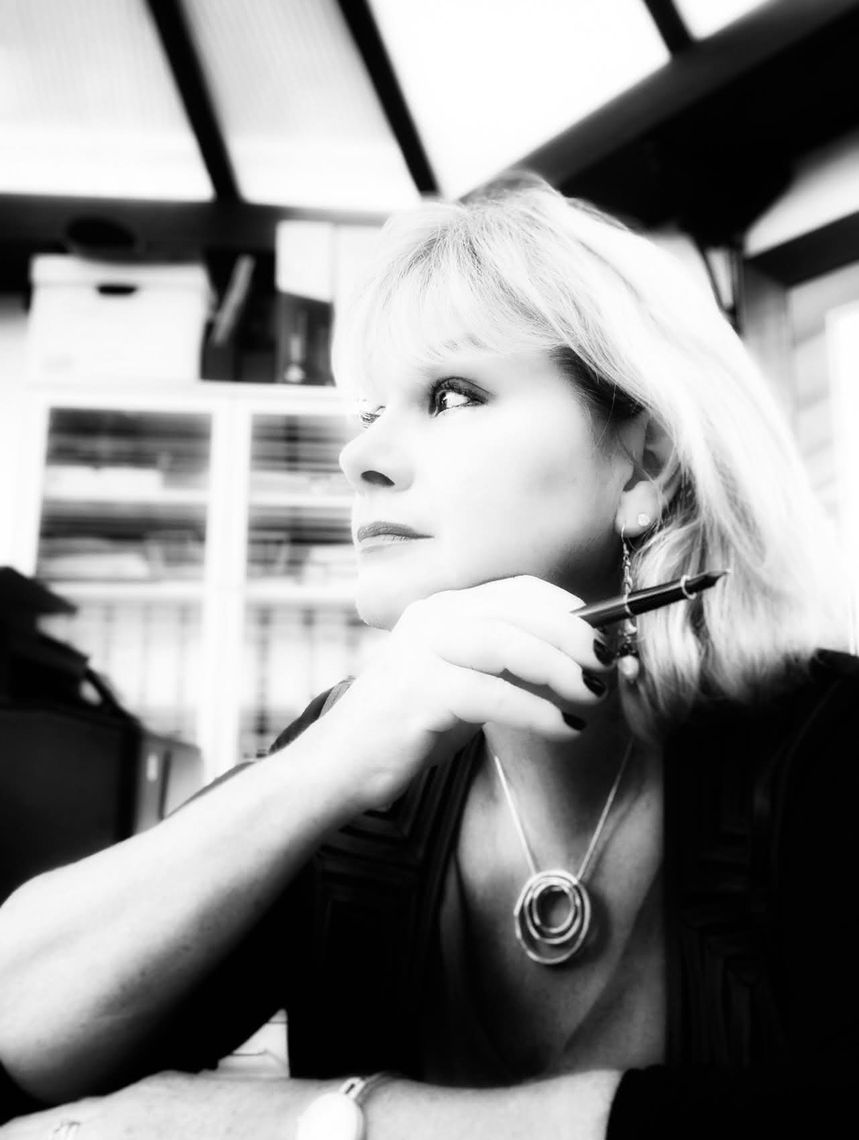GG: Iman, a little background on you please, in a homeopathic sense. What fuelled your interest in homeopathy?
IN: My late father became a delivery-boy for a pharmacy when he was 13 years old. His job was to deliver drugs for the pharmacy’s clients. He became very interested in the field of pharmacy, and as a result of his interest, he became a chemist and eventually owned a pharmacy. As far as I remember, I grew up in the environment of pharmacy and natural remedies. One important thing that always stood out is that my father always tried first to help his clients with natural medicines and nutritional supplements instead of or in conjunction with their prescription drugs, and for this reason he had many loyal customers. I had many opportunities to observe him giving advice to patients over the years, and I naturally developed a great interest in natural remedies. Thereafter when I finished high school, I applied to a few universities, and I received acceptance from all, and even a scholarship from the York University in Toronto. After reading an article in a local paper about the philosophy of Homeopathy, it was love at first sight. The more I read about it, the more I was mesmerized with homeopathy; so logical, such a systematic and organized approach to health-care that I couldn’t picture myself doing anything else. Therefore I pursued studying natural medicine including classical homeopathy for a total of six years. Shortly after completion of my studies, I also had the opportunity to teach homeopathy, mostly to allopathic doctors who were interested to learn about it.
GG: So, natural medicine is in your blood! However, do you see a place for allopathy?
IN: Yes definitely there is a place for allopathy; the right place for allopathy is to be the alternative-medicine, as truly it is; and for homeopathy to be the primary care giver.
GG: I agree, 100%. This way we would massively reduce deaths from iatrogenic disease, which is a leading cause of death in the US, next to heart disease and cancer. You are a classical Hahnemannian homeopath. What does this mean to you? Are you open to more ‘modern approaches?’
IN: Yes I am a Hahnemannian homeopath, but this is not the end of the road; as we know, homeopathy is a combination of science and art, so how can I be scientific and an artist if I would not be open to advancement of this medical system? We need to explore modern approaches and improve; and indeed improvement is a never-ending process. Having said that, I’m truly against misleading and unscientific methods that are mainly intended for business purposes, which at the end of the day, you see that these unproven methods do harm by confusing students and taking away their confidence in taking real cases.
GG: Could you be more specific here, maybe without naming?
IN: For instance, there are methods out there that right away direct the homeopath to classify the patient into categories or kingdoms, hence the homeopath enters into investigation of the case with a preconceived idea, a preconception of sensational delusion. Keep in mind that an unprejudiced observer first takes nothing into consideration other than symptoms of the disease in its totality!
GG: Which particular homeopaths from history inspire you?
IN: After Hahnemann, historically, I have to say Dr. Constantine Hering, because he had dignity. Hering was a real skeptic – he dedicated his life to put everything to the test and relied on pure experiments!
GG: All we ever see in print are cured cases. Can you say something about the real life difficulty of practicing homeopathy, and the failures?
IM: Generally people that believe in homeopathy have extremely high expectations from it. They should realize that homeopathy is not magic and certainly it’s not a religion; it is a medical system. Thus if a case is not curable due to many reasons, then homeopathy has its own limitations and cannot cure such cases, but to some extent it may improve the quality of life for such patients. Having said that, we also need to consider that most often in failed cases, it is the homeopath practitioner who failed, not necessarily the homeopathy. What I mean by this is that we practitioners are responsible to do a gap-analysis and quality control in the way we practice. In order to take and treat a case successfully, there are three major essentials that a homeopath needs to have: knowledge of the patient based on her individuality, knowledge of disease based on totality of the symptoms, and knowledge of Materia Medica – remedies – to find the simillimum. Incompetency, insufficient or lack of any of these skills will make it very difficult to practice homeopathy.
GG: In the UK, five homeopathic hospitals have been forced to close due to propaganda from homeopathy’s critics. Why do you think they have such an undue influence?
IM: All firms and lobbyists that sponsor negative campaigns with biased media to discredit homeopathy for their own financial benefits and secret agendas – always have harmful influences and they do whatever it takes in their bigoted approach to close down homeopathic centres. However we need to keep in mind that although they hold the political power, we have a time-tested medicine that is in service of humanity for more than 200 years. They call homeopathy a “delusion”, “placebo”, “magic”,…but they’re misleading the public by these false accusations. Tell me how logically and scientifically you can call homeopathy a delusion, placebo and magic – when it treats children, animals and plants so effectively!
In regards to the closures of the homeopathic hospitals in the U.K., I think it all comes down to business and lack of budget. Maybe we should follow India as a model, because homeopathy is integrated into their healthcare system, including hospitals and people have choice!
Regretfully, homeopaths are not united globally as we could be. We need to do a better job marketing for homeopathy in one voice. For instance, here in Canada, we have so many different homeopathy schools and at least six different associations just in Ontario – that’s only one province with less than two thousands homeopaths – but so many organizations. Instead we should have one strong association to represent the profession in this province. This way we can come together and put one scientific panel together, hire a legal counsel and designate a qualified committee for Public Relations and to handle Media inquiries in the most professional way possible.
GG: What makes you so passionate about homeopathic history?
IM: Generally in life, I think we need to know the past before we would take future actions. Even in receiving a patient’s case, we would dig out the patient’s medical history, which helps us understand and investigate the case in a better way. Similarly, I am very passionate about the history of medicine in general and most specifically about the rich history of homeopathy. One of the past homeopathic historians that I admire is the late Julian Winston who passed away in June, 2005. In 1982, Julian was elected as a member of the Board of Directors of the National Center for Homeopathy in the U.S., and as of 1982 he was the editor of the NCH newsletter, Homeopathy Today. He served as registrar of the NCH Summer School from 1981 through 1987, and served as dean of the program from 1988 until 1992. Julian was also a member of the Homeopathic Pharmacopoeia Convention of the United States (HPCUS); and as I mentioned he was a great homeopath historian.
GG: Where do you find such fascinating photographs and documents?
IM: I spend time communicating with many Librarians around the world, and some of them are helpful in directing me to find those historic gems.
GG: You seem to love sharing your knowledge and do so with integrity and humour. Does anything annoy you professionally?
IM: Ignorance and egotism; these are personality-disorders that unfortunately even some homeopaths are suffering from too, perhaps a few of them due to fame. I think as homeopaths we must take care of our own personal health first and try to serve patients with a healthy mind.
GG: Describe the influence that having Kaviraj as a mentor and teacher had on you.
IM: Kaviraj was a gift, and a messenger in my life; I learned things from every sentence that he spoke. A deep friendship sprung between us, and I’m grateful. I’m not able to describe by words how he impacted my mental growth. He explained things in 3D, from the scientific, spiritual and intellectual aspects. Despite his vast knowledge and expertise, above all, he was approachable and humble!
GG: Yes, a true patriarch of homeopathy. His work, particularly in the field of agrohomeopathy was pioneering and lives on. What do you want to achieve in the future?
IM: I am currently working on few exciting homeopathic research projects, which I hope to complete in the near future and to report my findings to the homeopathic community. The goal of my research team is to establish scientific procedures that would be repeatable for validation – in order to demonstrate the effects of the trituration and potentization processes – to show clearly how matter behaves when it is transformed into its dynamic potential by potentization!
GG: Where do you see homeopathy in 10 years time?
IM: That’s up to us; we can raise the bar as high and as advanced as we want. I hope to see that in 10 years or even less, by utilizing nanotechnology, we would be able to investigate the quantum mechanism of homeopathy.
GG: Thank you Iman, your work is greatly appreciated.
IM: Thank you!



